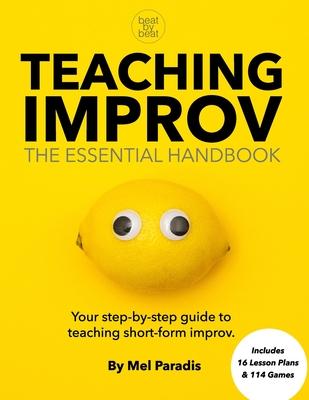Do you want to teach improv, but don't know where to start? Are you looking for ways to structure improv games into effective lesson plans?
Introducing Teaching Improv: The Essential Handbook, a new resource packed with 16 step-by-step lesson plans that will take the stress out of planning your improv classes. We've done the hard work for you, by organizing today's best improv games into fun, skill-based lessons that your students will absolutely love. More importantly, you'll see them grow into confident and creative performers.
This resource was created by the same award-winning publisher of Teaching Drama: The Essential Handbook, a #1 best-seller on Amazon which has sold over 35,000 copies and has been translated into 5 languages.
Go beyond improv games. With this book you'll get:
- 16 detailed, full-proof lesson plans that cover the "9 rules of improv"
- Notes on how to introduce improv concepts in clear, concise language
- Over 114 improv games and activities
- Reflection and journaling exercises after each lesson
- Homework handouts and YouTube video links to deepen understanding
- Sample "performance line-ups" for every age/experience level
- A troubleshooting guide to address common issues
- Bonus Digital Material with 23 Videos to demonstrate how games are played
Below are just a few of the topics covered in the lessons:
- Teamwork and Trust. Students will demonstrate an understanding of improv and develop trust with their classmates.
- Make Associations. Students will practice making associations and discover tools to help them think quickly and creatively.
- Yes, and. Students will demonstrate the ability to accept a statement or action that they are given and add something to it.
- Listen. Students will listen to each other by observing how their classmates move and absorbing what their classmates say.
- Relate. Students will learn to internalize and connect with whatever has been communicated.
- Be honest. Students will demonstrate honesty in their creation of environments, objects and characters.
- Be in the present. Students will make strong initiations that are rooted in the present.
- Tell a story. Students will learn how to incorporate the Important Elements of Storytelling into their scenes.
- Develop Relationships. Students will explore how status affects relationships, and how it can be used to enhance a scene for comedic or dramatic effect.
- Scenework. Students will create entertaining scenes with characters who have a strong relationship, locations, a strong initiation, and a conflict.
